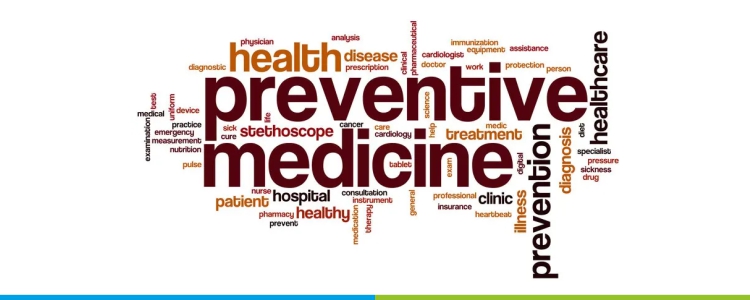Importance of Preventative Medicine and Healthy Living for Senior Citizens

Prevention is always better than a cure for health! Every day, hundreds of people die from illnesses that could have been treated if they were diagnosed earlier. Preventative medicine plays a crucial role here. Medicine that focuses on the prevention of disease is known as preventative medicine or prophylaxis. This refers to preventing a disease or stopping one before it leads to serious complications. It can be done by the government, by doctors, or by the individual themselves.
Because of advances in healthcare, active lifestyles, and more opportunities for a healthier lifestyle, more seniors than ever are living longer, healthier lives. The decline in senior health is not considered a foregone conclusion by aging experts, even though chronic illness remains a factor in a significant number of older adults. People aged 65 and older who regularly visit their doctors and have wellness screenings have significant preventive benefits, both in delaying and preventing disease onset and progression.
So, what is preventative care?
Medicine that prevents diseases and promotes health is often referred to as preventive medicine or preventative medicine. Several screenings are included here, such as blood pressure, cholesterol, diabetes, depression, and pediatric screenings for vision, hearing, and autism.
If you are elderly or care for one, monitor the following screenings:
- Blood pressure: Several reasons make this an important issue for seniors. As we age, blood pressure naturally rises because of a change in the arteries and the circulatory system. Because of the lack of symptoms that often accompany high blood pressure, your doctor is to detect and treat it. People over the age of 65 have a higher risk of developing heart disease because of high blood pressure.
- Vaccines: Elderly people need to get regular vaccinations – and not just in the winter. There’s no escaping the fact that flu shots are a must each year. However, they should include pneumococcal pneumonia and shingles vaccines as well.
- Diabetes: From heart disease to obesity to dementia, this insidious autoimmune disease often manifests itself without obvious symptoms. It is recommended that seniors 65 years of age and older undergo blood screenings every two years – more often if they have a family history of obesity, high blood pressure, or high cholesterol.
- Medication prescribed by a physician: Over 90 percent of Medicare recipients take prescription medication, including 40 percent who take five or more at the same time. These protocols should be reviewed and monitored regularly to ensure that doses are being administered correctly.
- Psychological well-being: Elderly people are often susceptible to isolation, loneliness, and associated depression. To prevent or proactively treat depression, mom and dad should have yearly wellness checks.
- Hearing and vision: The key to detecting and treating age-related diseases such as glaucoma, macular degeneration, and cataracts is to perform yearly eye screenings. Hearing loss in older adults is usually treatable, and seniors should receive an annual or biannual hearing test.
- Weight and height: Weight checks are important to prevent obesity and other health problems associated with excess weight since metabolism and mobility slow down with age. Bone density changes associated with osteoporosis can be detected by height tracking for women.
- Oncology: It’s important to get the elderly the right medical guidance regarding screenings for cancers that can be treated – typically prostate, cervical, breast, and skin.
Lifestyle changes & ways to live healthily for seniors:
- Be aware of what you eat
- Constant Screening
- Manage your medications
- Get enough sleep and rest
- Socialize
- Stay physically active
- Visit the dentist
The field of preventative medicine focuses on preventing diseases rather than treating them. Hence, older adults must benefit from a variety of preventative services, such as influenza screening, breast cancer screening, and diabetes screening. It is also important that seniors adopt a healthy lifestyle. Several steps include eating right, exercising, visiting the dentist, and staying social.
At OMNI Hospitals, we have an expert team of doctors & staff to ensure the best preventative care for older people. Our centres of excellence for cardiology, nephrology, neurology, orthopaedics, gastroenterology, and pulmonology provide the best medical facilities with experience & expertise. If you’re looking for the best preventative care for older people, get in touch with OMNI experts at Call: 888 0101 000
